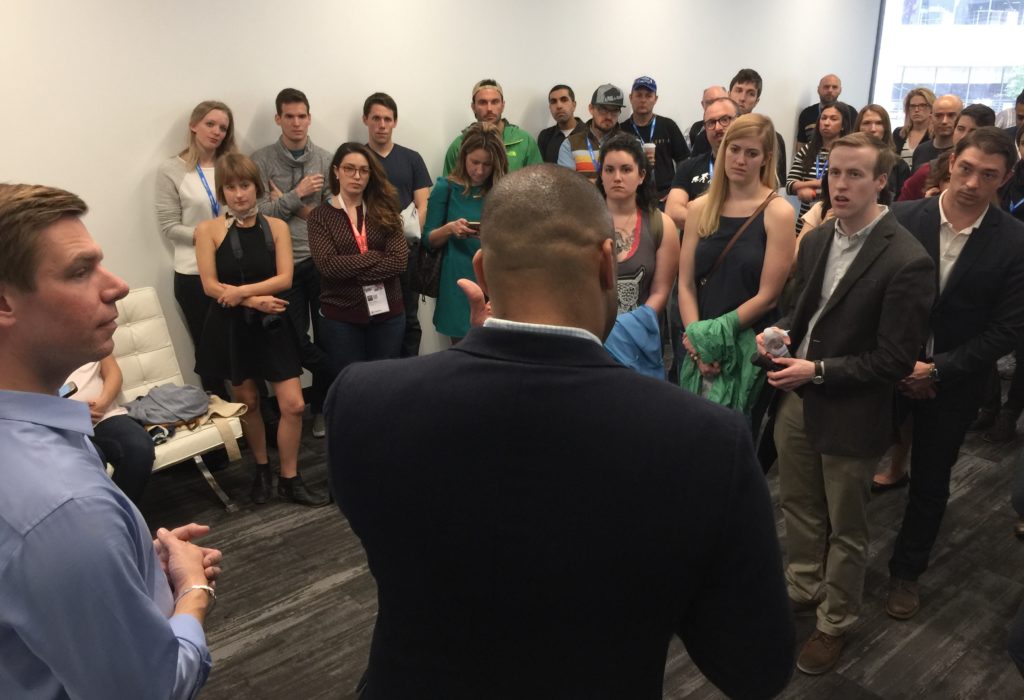Saturday morning, Austin Tech Alliance, Austin Technology Council, and Austin Young Chamber co-hosted the Congressional Future Forum Meetup with four members of Congress: Rep. Eric Swalwell (CA-15), Rep. Ruben Gallego (AZ-07), Rep. Nanette Barragan (CA-44), and Rep. Marc Veasey (TX-33).

The Future Forum is made up of the youngest members of Congress and describes itself as “committed to listening to and standing up for the next generation of Americans” — millennials in particular. More:
We care about the issues facing young Americans, because we ourselves are young Americans. Future Forum will not be just another one-off, ceremonial group — it will last as long as the issues challenging our generation are around. We invite you to join the conversation and help us change the world. To start, we believe Congress should stop talking to millennials, and start talking with millennials.
The members of Congress did just that and visited with the crowd for an hour, discussing topics as varied as student debt, economic incentives, diversity, investments in our public education system, the future of work, the 2016 presidential election, and how best to contact your elected officials.
And it wasn’t just speeches by the elected officials — it was a genuine back and forth exchange prompted by questions from the audience. Attendees understood which issues impact their lives and spoke in support of substantive ways to address them.
This setting is something that numerous members of Congress across the country are avoiding these days, often resulting in a disconnect between legislators and their constituents.
Rep. Swalwell jokingly referred to the Future Forum as the “millennial whisperers” — because this type of direct engagement with that generation is too often missing in today’s politics.
But attention from elected officials and responsiveness to the issues that millenials care about will come as a natural result of an increase in voting turnout. Despite millenials making up the largest living generation in the country, they do not show up to the polls at the same rate as older age groups. As NPR explains:
Baby Boomers reached their peak voting power in 2004. But since then, that population has been dying and declining; while, at the same time, millennials have been aging (turning 18) and increasing as a percent of the voter pool. And, so their political power is likely to grow in the coming years.
But, as the Pew analysis points out — this all refers to potential, not actual political clout. In the 2012 election, voters between the ages of 18–29 made up just 19 percent of the electorate — that’s HALF the share of the Baby Boomer voting bloc (who were 38 percent of the electorate).
In fact, millennials continue to have the lowest voter turnout of any age group. Only about 46 percent voted in the last presidential election; compared to 72 percent of the Silent Generation, who habitually punch above their weight.
While that lack of engagement may be true nationwide on election day, the group gathered on Saturday morning bucked that trend. They spoke with passion about the future of their community and country and were clearly plugged in to ongoing debates in Congress.
Many thanks to Capital Factory staff for their assistance with the event!

